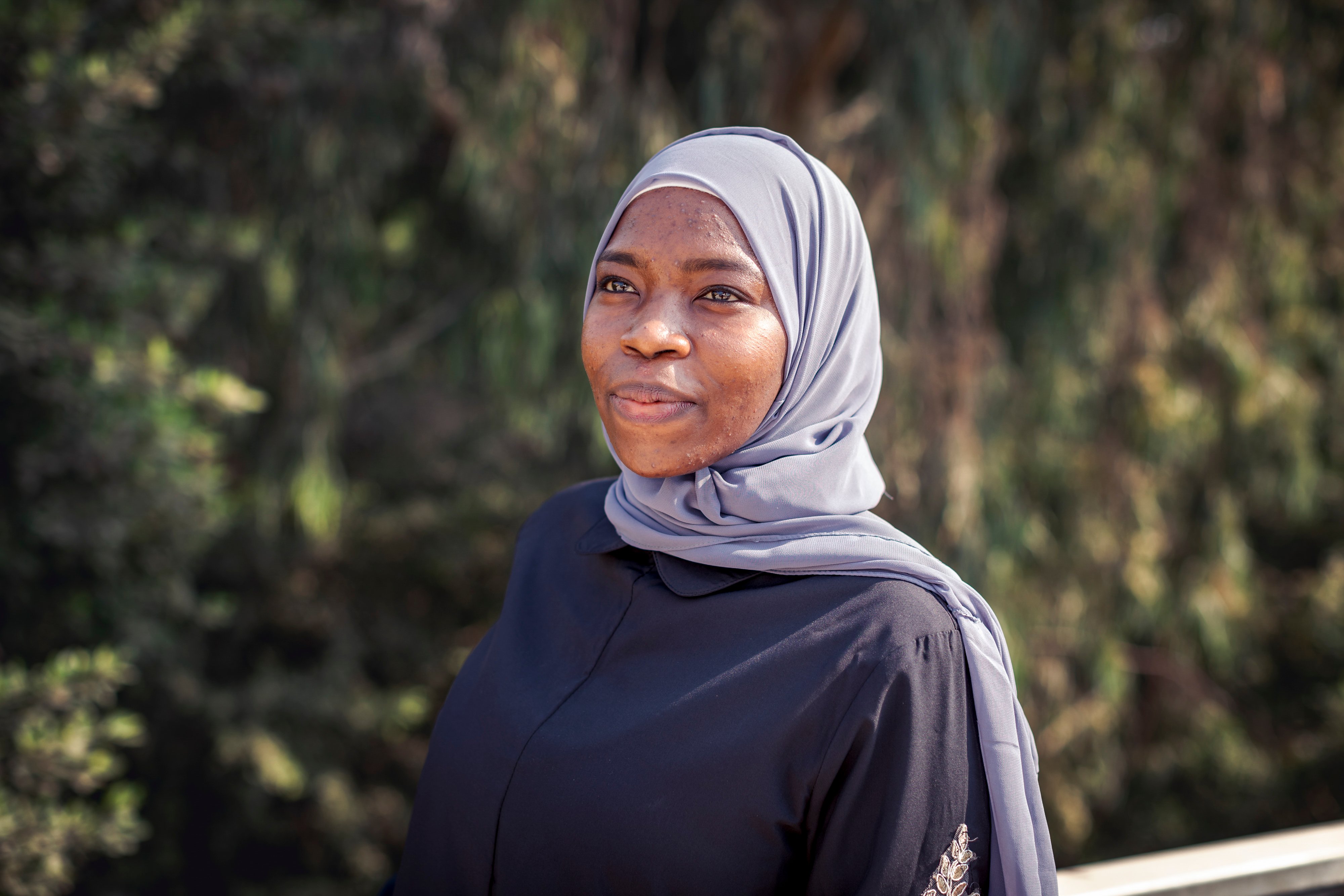A Beautiful Mind

A Beautiful Mind
I first spot Fatima when one of her eyes peeps through the curtain that serves as the door to her home in a coastal village in Lebanon. She waves her hand discretely to suggest that I join her inside.
Fatima is 16 years old. She is living in a village 20 kilometres south of Beirut, a place where makeshift structures have been turned into homes for more than 20 Syrian refugee families. I'm visiting to check on UNHCR programs in the area.
Fatima is from Daraa, Syria. She arrived in Lebanon with her family one year ago after being displaced three times inside her own country. She now shares a tiny space with her parents and 13 younger siblings. Many of them invade our discussion as they return from school early in the afternoon.

I'm struck by Fatima's curiosity. I usually ask many one-way questions of refugees here in Lebanon, hoping to learn more about their pressing needs. But Fatima wants to know about me.
"Look at us: we spend our days in this shack. What kind of a future would I be promising my children here?"
She tells me she is engaged. "We thought it would be better like that," she says. "I would be taken care of, and my honour would be preserved." Then she asks: "Are you married?" I tell her yes, and she showers me with questions. When I admit that I don't know how to cook, her eyes widen with disbelief.
I am equally surprised when she tells me she doesn't want to have children, a very uncommon stance in this part of the world. "Not under these circumstances I wouldn't," she explains.
I ask to take her picture. She goes to ask for her fiancé's permission, but he is uncomfortable with the idea. We settle for the photo above, with Fatima's back turned to the camera. Then she finds out that I am driving back to Beirut – for her, another world. And the questions start again.









